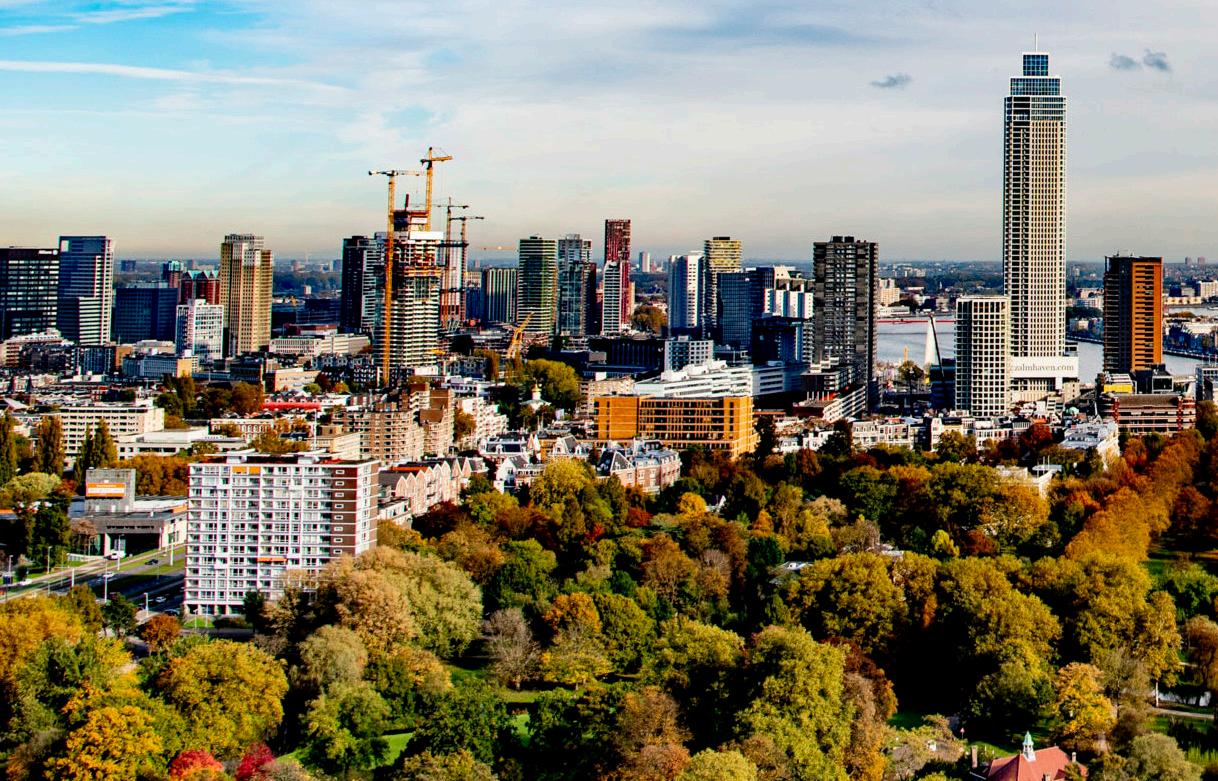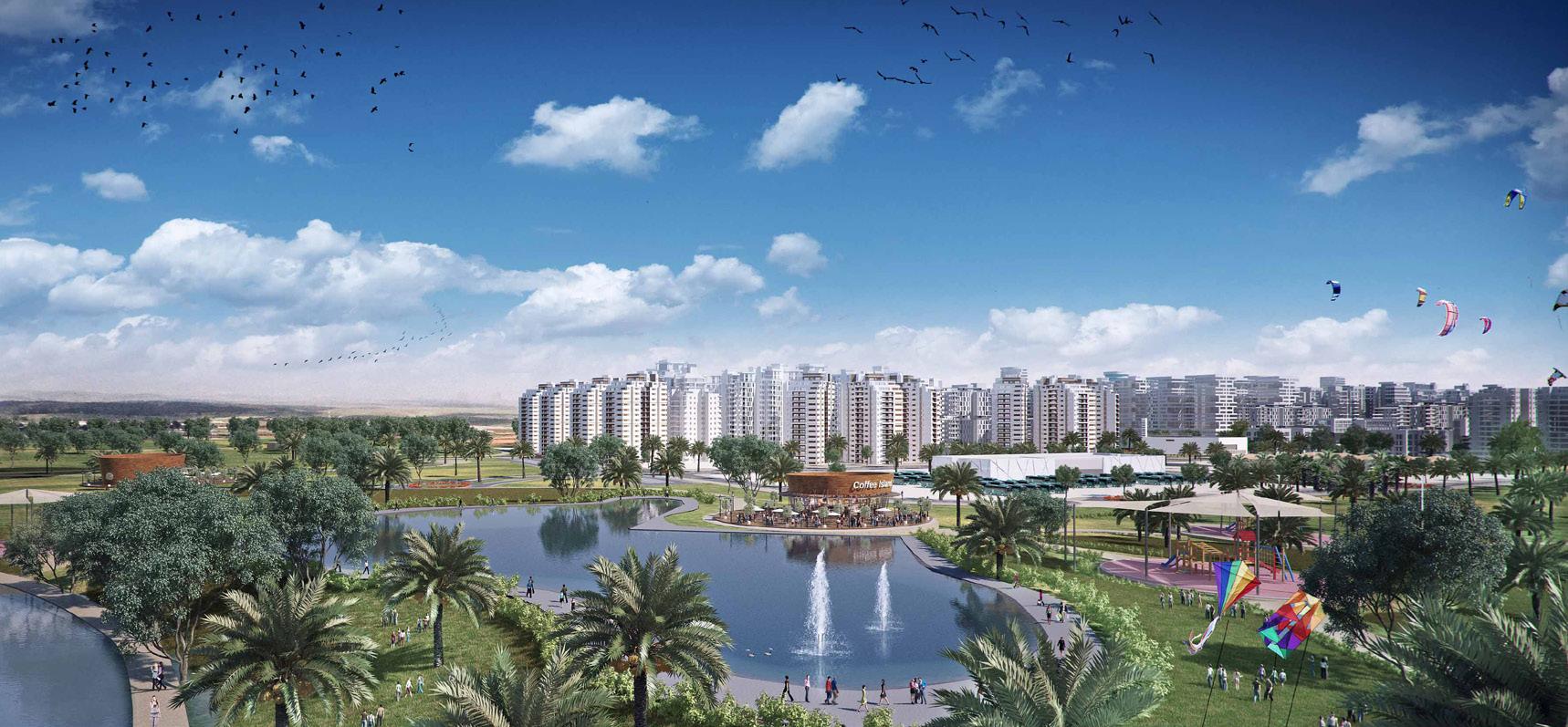INNOVATION & CHANGE
WHY MAYORS SHOULD RULE THE WORLD This TED Talk was presented by Benjamin Barber at TEDGlobal 2013 and posted to TED on September 20, 2013. We honor his legacy by publishing it here.
Transitioning away from nation-states to a system of cities will globalize the world—and mayors are proving it.
D
emocracy is in trouble, no question about that, and it comes in part from a deep dilemma in which it is embedded: It’s increasingly irrelevant to the decisions we face. In fact, we live in a world of interdependence and brutal interdependent problems. And when we look for solutions in politics and democracy, we are faced with institutions designed 400 years ago—autonomous, sovereign nation-states with jurisdictions and territories separate from one another, each claiming to be able to solve the problem of its own people. In that dilemma lies the central problem of democracy. And my suggestion is that we stop talking about nations and bordered states and start talking about cities. Because when we talk about cities, we are talking about the political institutions in which civilization and culture were born. We are talking about the cradle of democracy. We are also talking about the public spaces where we come together to create democracy and at the same time protest those who would take our freedom. Think of Place de la Bastille, Zuccotti Park, Tahrir Square, Taksim Square, or Tiananmen Square; those are the public spaces where we announce ourselves as citizens, participants, and people with the right to write our own narratives. Cities are not only the oldest institutions; they’re the most enduring. If you think about it, Constantinople (Istanbul) is much older than Turkey; Alexandria is much older than Egypt; Rome is far older than Italy. Cities endure the ages. They are the places where we are born, grow up, are educated, work, marry, pray, play, get old, and, in time, die. They
18 | Smart City Miami
are home—very different from nation-states, which are abstractions. We pay taxes, we vote occasionally, we watch the people we choose rule more or less without us. Not so in our towns and cities. So if the dilemma is that we have oldfashioned political nation-states unable to govern the world or respond to global challenges like climate change, then maybe it’s time for mayors to rule the world, for mayors, citizens, and the people they represent to engage in global governance. When I first came up with the phrase “if mayors ruled the world,” it occurred to me that they already do. There are scores of international, intercity, cross-border institutions, networks in which cities are already working together to deal with climate change, security, immigration, and other tough, interdependent problems that we face. They include UCLG (United Cities and Local Governments); ICLEI (the International Council for Local Environmental Issues); Citynet in Asia; City Protocol, an organization out of Barcelona using the web to share best practices among countries; the U.S. Conference of Mayors; the Mexican Conference of Mayors; and the European Conference of Mayors. Mayors are where this is happening. So, how can we create a world in which mayors and the citizens they represent play a more prominent role? To understand that, we need to understand why cities are special, why mayors are different from prime ministers and presidents. To be a prime minister or a president, you have to have an ideology, a meta-narrative, and a theory of how things work; you have to belong to a party.
Independents, on the whole, don’t get elected to office. But mayors are the opposite. Mayors are pragmatists; they’re problem-solvers. Their job is to get things done, and if they don’t, they’re out of a job. Mayor Michael Nutter of Philadelphia said he could never get away with the stuff that goes on in Washington—the paralysis, the non-action, the inaction. Why? Because potholes have to get filled, trains have to run, and kids have to get to school. Mayors have to put ideology, religion, and ethnicity aside and draw their cities together. We saw this a couple of decades ago when Teddy Kollek, the great mayor of Jerusalem in the ’80s and ’90s, was besieged one day in his office by religious leaders from all of the backgrounds —Christian prelates, rabbis, imams—who were arguing about access to the holy sites. Kollek listened and then said, “Gentlemen, spare me your sermons, and I will fix your sewers.” That’s what mayors do. They fix sewers. They get the trains running. There isn’t a left or a right way of doing things. Boris Johnson calls himself an anarchoTory. He’s a libertarian; he’s an anarchist; he rides to work on a bike. But at the same time, he’s in some ways a conservative. Bloomberg was a Democrat, then he was a Republican, and finally, he was an Independent and said the party label just gets in the way. Yury Luzhkov, 20 years mayor in Moscow, helped found the United Party with Putin, but he refused to be defined by the party. He eventually lost his job, not under Brezhnev or Gorbachev, but under Putin, who wanted a more faithful party follower. Mayors are also what I like to call homies.










































